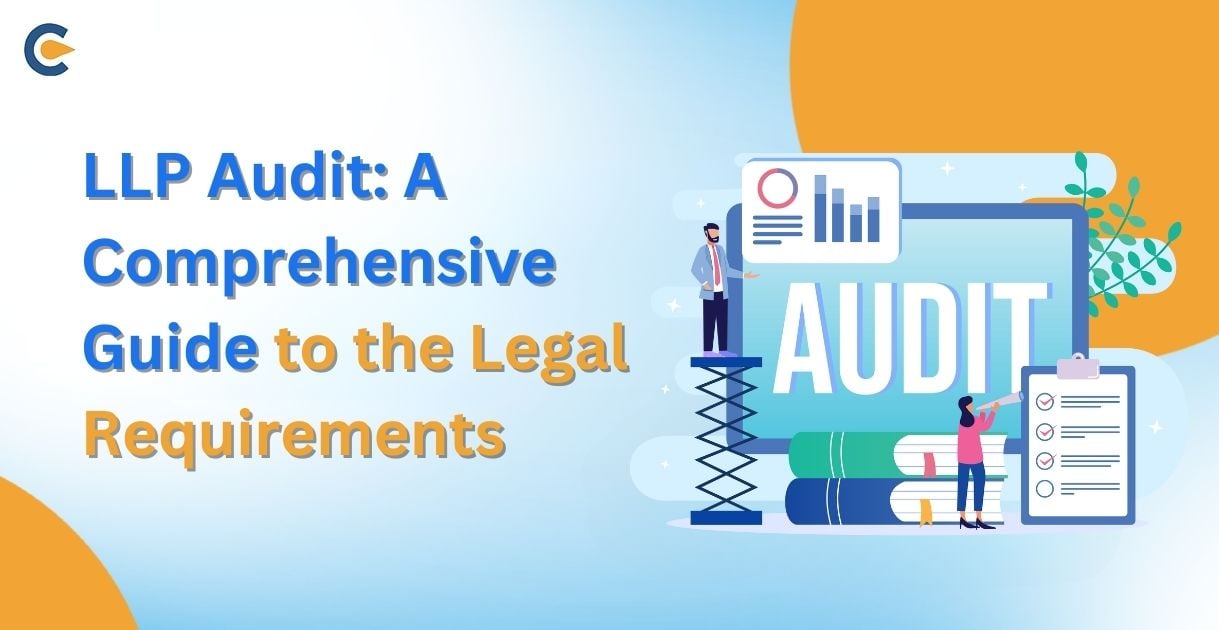The number of shares to be sold and the price per share are outlined in the terms of a subscription agreement between a company and an individual investor. This potential investor validates his or her eligibility to participate in the partnership by submitting an application for consideration. In order to expedite the transfer of shares in a privately owned firm, another function of a subscription agreement is to act as a facilitator.
A partnership is an agreement between two or more people in which they jointly own a firm. A partnership may include any number of people. The partnership is not responsible for any kind of tax filing or payment. Instead, each partner is responsible for an equal share of the business’s revenues and losses. The partnership agreement stipulates that each partner is liable for paying taxes based on the proportionate share of the partnership’s taxable income that corresponds to their investment in the business. General partnerships are a common form of organization for professional services businesses like accounting and legal practices.
A limited partnership (LP) is a kind of company organization in which one or more person act as general partners and recruit limited partners by means of a subscription agreement. This type of business organization is also known as a limited liability partnership (LLP). Participants are required to pay a subscription fee in order to take part in the organization as limited associates. The ultimate decision about whether or not to approve a candidate who has satisfied all of the criteria is made by the general partner in the partnership.
Limited partners are investors who support a firm financially (usually in the form of a one-time payment), but they have no voice in the day-to-day operations of the business. As a result, limited partners are required to make a smaller time commitment to the day-to-day operations of the partnership and are exposed to a lower level of the risks that are connected with the firm.
The initial investment made by each limited partner is the maximum amount of risk that they are exposed to financially. The potential limited partner’s history of investing, degree of experience, and net worth are all spelled out in the subscription agreement for the limited partnership (LP).
Regulation Of Conduct of Subscription Agreement
Rule 506(b) and Rule 506(c) of Regulation D of the SEC are often applicable to subscription agreements. These regulations govern the manner in which an offering must be carried out as well as the amount of crucial information that must be communicated to prospective backers.
When general partners include new limited partners in an offering, they are responsible for revising the subscription agreement and obtaining the approval of all of the current partners. When compared to the restrictions governing an initial public offering[1] (IPO), the ones governing the raising of money via a Reg D transaction are noticeably laxer. Businesses are able to avoid delays and sell securities that they otherwise would not be able to issue as a result of this assistance.
Mechanisms Of Working of Subscription Agreements
Your company’s subscription agreements will be different from those of other businesses because of factors such as the nature of its demands, the nature of its industry, and the size of your organization. In most cases, they explain to prospective investors the specifics of the return on investment (ROI) that is being promised. There is room for negotiation on either a percentage or a cash sum.
The following actions make up the many stages involved in the formation of subscription agreements:
- The first step is to decide to put your subscription agreements in writing; the second step is to make sure that your subscription agreements are easy to understand; the third step is to accurately identify the agreement’s principals and investors; and the fourth step is to record all relevant information.
- Now establish safety in the event that a party desires to terminate the agreement. Also don’t forget to determine how you will handle investor disputes. Next, it is important to maintain the confidentiality of your discussions and contracts.
- Ensure to employ securities lawyers to design your subscription. Also, you may employ securities attorneys to design your subscription.
- The use of Internet contract templates may be a money-saving strategy for several startups as well as existing organizations. In the short term, this could help you reach your goal more quickly, but in the long run, it might wind up costing you more money since the subscription agreement might not be written very well. You should get your contracts evaluated by solicitors if you want them to be worth more than just the paper they are written on.
Important Clauses in The Subscription Agreement
Entrepreneurs have the option of using subscription agreements in their businesses rather than submitting documentation to the Securities and Exchange Commission (SEC). The governance of subscription agreements is governed by Regulation D, which is regulated by the SEC’s Rules 506(b) and 506(c), both of which provide for some exclusions. When it comes to creating subscription agreements, your company has to take into consideration a number of different criteria and prerequisites, regardless of the constraints.
The outstanding shares, payment conditions, share ownership structure, shareholder resolutions, director resolutions, and minute recordings are the primary components of a subscription agreement.
Indemnification and guarantees, a covenant not to compete, essential and adequate conditions, and a nondisclosure clause round out the agreement’s provisions.
When selling shares to investors, it is important to use subscription agreements. They could include both general and company-specific components, such as the ones described in the previous sentence.
Contracts For Private Placement Investments Along with Subscriptions
When a firm is in need of funding, one option for raising money is to sell shares to investors via either public offers or private placements. The distribution of information to the general public is mostly accomplished via the use of prospectuses. Information on the firm as well as the securities that it is founded on may be found in the prospectus.
Private placements include the offering of securities to a select group of investors who have already shown their capacity to support themselves financially. Obtaining accreditation calls for a significant amount of investment-related expertise as well as resources and assets. As an alternative to a prospectus, a private placement memorandum will be provided to investors. The investment is explained in the memorandum with fewer specifics than usual.
The memorandum will often be accompanied with a subscription agreement at the same time. It is possible for a return on investment to be either a predetermined sum of money or a percentage of the overall net income of the firm, according to the terms of certain agreements.
The agreement will also include details on the due dates for these returns. In this hypothetical situation, the return on investment that the investor obtains is more than what the company’s founders and other minority shareholders earn.
Description Of a Subscription Agreement
The subscription agreement is the document that a privately owned firm use to keep track of the number of shares sold as well as the price per share. The subscription agreement lays out all of the terms and conditions of the business deal, including the total number of shares, the purchase price, and any relevant criteria for the maintenance of secrecy.
When parties enter into certain types of agreements, investors are assured of receiving a certain rate of return. This might be a predetermined sum that is deducted from each employee’s paycheck, a certain percentage of the company’s net earnings, or any mix of the two.
Start-ups and smaller businesses commonly make use of subscription agreements in their business models. Angel investors are often brought in when the owners of a firm do not have the financial means necessary to engage venture capitalists or to go public.
What Is the Reason Behind the Importance of Subscription Agreements?
Businesses that are in need of extra cash may use this method as an alternative to going public or seeking investment from venture capitalists. When investors form a limited partnership, they essentially take on the role of silent partners in the business. These sponsors are only needed to make one gift, and further contributions are not expected from them in any capacity. The risk is reduced, but shareholders have less of a say in how the company is managed as a result.
Rule 506(b) and Rule 506(c) of the SEC Regulation serve as the cornerstones of subscription agreements. This collection of standards tackles investor solicitation, information disclosure, and eligibility to invest, among other topics.
When looking for finance from private investors, firms commonly use subscription agreements as one of their financing tools. It is not necessary to file paperwork with the SEC in order to sell firm shares or the complete business. In order to entice potential investors, businesses may commonly include a subscription agreement along with their private placement memorandum. Whether you are a corporate investing in another firm or a private investor, the terms of the transaction, including the agreed-upon amount and price for the shares, are defined in a subscription agreement.
Alterations to the provisions of the agreement can provide protection for investors against firms. Because of this, a stock-selling corporation is protected in the event that a prospective buyer changes their mind at the very last minute. It is possible to turn a verbal agreement into a contract that is legally enforceable with the use of a subscription agreement.
What Are the Benefits, And What Are the Drawbacks, Of Subscription Agreements?
When it comes to making financial investments, the use of subscription agreements may have both positive and negative effects.
Advantages
- The Securities and Exchange Commission (SEC) registration requirement is waived in the case of the transfer of shares by means of subscription agreements. It is possible that the process of creating the prospectus needed by the SEC for registration will be both time-consuming and costly.
- Unlike venture financing, which often needs many contributions spread out over a significant amount of time, angel investing just requires a single financial commitment from the investor.
- Being a silent partner in an investment may save you time, and since it is a limited partnership, you won’t have to worry about any legal concerns arising from the transaction.
Disadvantages
There is neither the opportunity nor the right to have a say in the running of the organization or to contribute to its growth. You can’t get your money back after you’ve made an investment, so you have to have trust that the company’s management will keep its promises.
Advantages And Disadvantages of Skipping Out on Subscription Agreements
What happens if you change your mind and decide to invest your money somewhere else? The table that follows presents a comparison of the benefits and drawbacks associated with investing without using subscription agreements.
Advantages
- A private placement memorandum does not include as much information as a prospectus that has been certified by the SEC. As a consequence of this, it may be of more assistance in deciding whether or not the investment is beneficial.
- Capital is necessary in order to invest in a firm via the use of a subscription agreement. On the other hand, you could choose to utilize a lower number if you are unsure about whether or not the publicly traded firm is a good investment.
Disadvantages
- You have the opportunity to participate in a private firm from the very beginning, sometimes known as the “ground floor.” Investing in a business prior to its initial public offering is possible. Your investment will be rewarded with a significant gain in value if the firm is successful to the point where it may be taken public.
- When you make an investment via a subscription agreement, you will have the opportunity to meet with the management of the firm and ask questions of the general partner. This is not always the case with regard to other options for investment.
Most Frequent Mistakes That Cause Difficulty in Compliance
- Don’t make the agreement too difficult to understand or too complicated. Try to ensure that this agreement is as clear as possible while yet having all of the necessary legal elements. For instance, you can just mention that the investor has read the private placement memorandum; there is no need to go through the details of the document again. In the event that the disclosures are rephrased, there will be no room for misunderstanding.
- You simply cannot overstate the necessity of having an attorney who specializes in financial law review your paperwork. Seek the advice of an attorney if you want to be sure that you fully understand the contract and that you are happy with all of its provisions.
- If you are an investor, you may be curious about the fate of your money and whether or not it would be held in escrow. After that, after the objective has been accomplished, the monies will be sent to the retailer. If the goal is not accomplished, the investors will have their money returned to them in this manner.
Alternatives To Financial Support for Private Companies
Because of these agreements, private firms in the United States are excluded from having to register with the United States Securities and Exchange Commission in order to sell shares to certain buyers. A good example of this is venture capital investment, which is when a corporation sells shares of stock to a group of investors in return for financial backing to either start a business or grow an existing one. Before moving forward with the sale of shares, both parties are required to execute a sales contract that is legally binding. From a legal point of view, this kind of transaction is characterized by the use of corporate stock agreements, which are also known as corporate subscription agreements.
Conditional Terms and Provisions of The Corporate Subscription Agreement
There are several provisions, such as terms and conditions that may be included in agreements to safeguard a private corporation. To ensure that the terms of the agreement may continue to be upheld and adhered to, subscribers are expected to do so. According to the indemnity provision, in the event that the company incurs monetary losses as a direct result of a subscriber’s dishonesty, the subscriber is liable to reimburse the company for such losses financially. A provision prohibiting the subscriber from engaging in competing businesses and/or a secrecy clause is typically seen in subscriber agreements. Contracts may also contain restrictions that ban subscribers from soliciting new business from the company’s current clientele or causing any kind of damage to the company’s brand.
Which Types of Financial Disclosures Are Necessary for Business Subscription Agreements?
When it comes to revealing their finances and other firm information prior to the signing of an agreement, private companies are held to the same standards as public corporations. When a corporation provides “full disclosure,” they provide all of their financial data as well as other particular details about their operations. In addition to this, this also contains the long-term strategic goals of the organization.
The official document that contains a list of names is the defining characteristic. The same document is referred to as a prospectus for public companies and a Private Placement Memorandum for private companies, respectively. It is sufficient to just sign this addition to the subscription agreement.
Conclusion
A standard purchase agreement is functionally equivalent to a corporate subscription agreement in terms of its purpose. A private firm and an individual investor come to an agreement in which the corporation agrees to sell the investor a certain number of shares at a predetermined price. In addition, the subscriber guarantees that they will buy shares at the price that was previously agreed upon. The person who buys a share in the firm will automatically become a shareholder in the company, despite the fact that this is a private transaction between the people involved.
Read our Article:Understanding The Components Of An LLP Agreement











